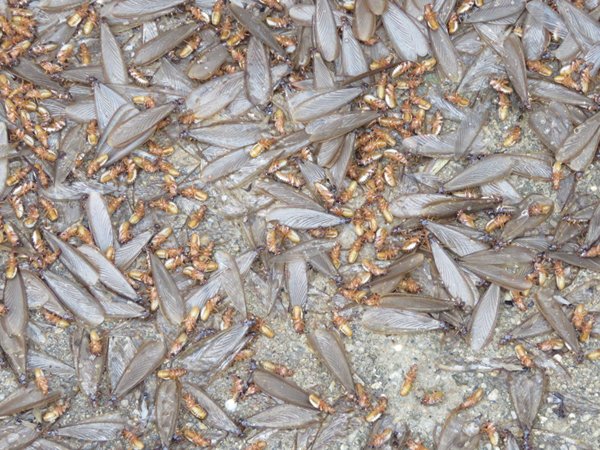A form of frenzy takes hold in Zimbabwe when the rains arrive. There is a frantic rush to the roadside, along the railway tracks, in the...

A form of frenzy takes hold in Zimbabwe when the rains arrive. There is a frantic rush to the roadside, along the railway tracks, in the wetlands, near cemeteries, and on any available open space, as the land is cleared, dug, and planted with maize. The view from the window shows people bent over, planting maize seeds into the moist earth. The pace is mesmerizing: a hand reaches into a small bag, one seed is held between finger and thumb, a quick flick and it lands in the hole, a swift kick covers it with soil, and the planter moves forward. Dip, flick, swipe, seed after seed, row after row, people are driven to grow food. Zimbabwe is a highly unpredictable place regarding food security; one day they announce a bountiful harvest, and the next day we're importing it, so you plant whatever you can, wherever you can.
Over the past 10 days alone, my hometown has experienced more than four inches (100 mls) of rainfall, leading to a sudden surge of creatures coming out from underground: millipedes and rhino beetles, sausage flies and Christmas beetles, as well as numerous flying ants that shed their golden wings and quickly seek shelter before becoming prey. In Zimbabwe, these flying ants are known as Ishwa and are highly sought after, being eaten by birds, small mammals, and collected by people everywhere. Under outdoor lights, in rain puddles, crowded under gutters, and in damp and wet areas, individuals with empty plastic bottles and bags are actively gathering flying ants by the handfuls. 'Ishwa' is a poetic and evocative term for these tiny winged ants, which are often fried or roasted with a bit of salt. This is Zimbabwe in mid-November, and this year, it's not just the usual mealie madness or the flying ant frenzy that's on our minds, but also the strange events happening within the government.
In recent weeks, Finance Minister Mthuli Ncube informed parliament that the average Zimbabwean spends US$9 per day, which he presented as proof of increasing wealth. The minister stated that by the end of December 2025, "Zimbabwe will be a fully developed middle-income economy." Spending US$9 daily seems highly unrealistic and has raised many doubts. Do people in a middle-income economy really shop under a tree or on the roadside, negotiating for a one-dollar used shirt? The Borgen Project, which uses data from UNICEF, the World Food Programme, and the World Bank, reports that as of April 2025, 60% of Zimbabweans lived on US$3.65 per day, an amount they classify as 'extreme poverty.' This figure is much more accurate than the one mentioned by the Finance Minister.
Then the Finance Minister stated that he would not eliminate the 2% tax on electronic transactions, even under pressure to do so; he mentioned that removing the tax would result in a 'significant loss of revenue.' Since 2018, when Minister Ncube took on the role of Finance Minister, we have been dealing with this harsh tax, which he claimed would only be temporary but is still in effect after seven years. A 2% charge is automatically added to every bill we settle, every bag of groceries we purchase, every piece of clothing, every medical supply we require, and every payment we make. In a nation where local currency banknotes are extremely scarce, we have no alternative but to use electronic transfers, thus paying tax after tax after tax.
Eventually, this astonishing announcement came from the Finance Minister. Addressing MPs in Parliament, he stated: "I am announcing today that we have purchased a hotel for you. It is the Monomatapa Hotel." The 182-bed four-star Monomatapa Hotel located in central Harare has been acquired by the government, with the purchase funded by the Pension Fund, which is intended to assist retired teachers, nurses, and civil servants. The acquisition of the hotel was not discussed or approved by parliament. Political analyst Reason Wafawarova remarked: "Not a single member of parliament questioned why Parliament, which is responsible for authorizing such spending, had not debated or approved the purchase prior to the transaction. Instead, they applauded like participants at a raffle, because in modern-day Zimbabwe, Parliament does not monitor the government; it performs for it." Minister Ncube claimed the purchase was made to reduce costs for MP accommodation when they are in Harare. This comes despite the fact that MPs "have been given plots of land in Harare, salary increases, doubled constituency funds, and are now being offered hotel suites. MPs are no longer representatives of the people; they are shareholders in privilege," said Mr. Wafawarova.
While the wealthy in Zimbabwe continue to grow wealthier and the poor become poorer, pensioners who have had portions of their salaries withheld for retirement over many years have recently discovered that their retirement funds have been used to purchase a hotel for Members of Parliament. It's hard not to question whether the retired nurse, teacher, or government employee will ever see any benefit from the luxurious hotel their pension money has acquired, or if they will continue to be seen working on the roadsides planting maize and gathering flying ants for dinner.
There is no cost for this Letter From Zimbabwe, but if you wish to make a donation, please visit my website.
Until we meet again, thank you for reading this Letter From Zimbabwe, which is now in its 25th year, along with my books on life in Zimbabwe, a nation in anticipation.
I am your friend
Love Cathy 21stNovember 2025. Copyright © Cathy Bucklehttps://cathybuckle.co.zw/
My new Photobook "Zimbabwe's Timeless Beauty The 2025 Collection" and my Beautiful Zimbabwe 2026 Calendar are now available. They can both be purchased through my website or LULU. Click here to place your order.www.lulu.com/spotlight/cathybuckle2018



